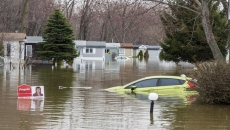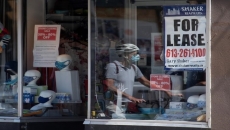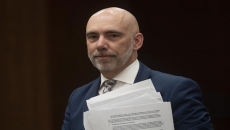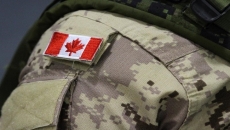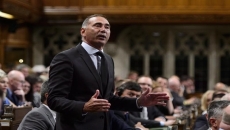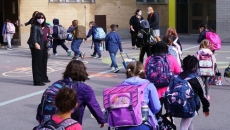Newfoundland and Labrador has rolled out new COVID-19 testing rules for people who routinely work outside the province and return on a set schedule.
Janice Fitzgerald, the province's chief medical officer, said Friday these so-called rotational workers typically include those employed in the offshore energy sector, the airline industry or at work camps out West, where the rotation is often two weeks on and two weeks off.
Under the existing rules, all workers returning home from another part of Canada — besides the Atlantic region — are required to self-isolate for 14 days, which means the time off for rotational workers often expires before they are allowed to end their isolation.
Fitzgerald said the rules will be relaxed for rotational workers to improve their work-life balance.
"It's been very trying on their mental health," Fitzgerald told a virtual news conference in St. John's.
Beginning Sept. 9, rotational workers returning home from outside the Atlantic region can arrange to be tested for COVID-19 by Day 5 of their isolation, and they can end their isolation by Day 7 if they test negative and have no symptoms. Test results are typically available within 48 hours, depending on where the individual lives.
Those who test negative, however, must avoid large crowds and wear a non-medical mask when interacting with people outside their household bubble.
Aside from the benefits for mental health, the change reflects the fact that the employers of rotational workers are known for having strict COVID-19 protocols, Fitzgerald said, citing measure adopted by remote work camps.
As well, she said the province has recorded only two confirmed cases of COVID-19 among rotational workers.
"We certainly appreciate there is a risk," Fitzgerald said. "There's no zero-risk situation here. But we have to strike a balance. These workers make up a significant portion of our population."
She said the new rules will remain in place during a four-week trial, after which the rules could be loosened further.
The new rules do not apply to workers coming from outside Canada or from an area in Canada with an active outbreak under investigation.

